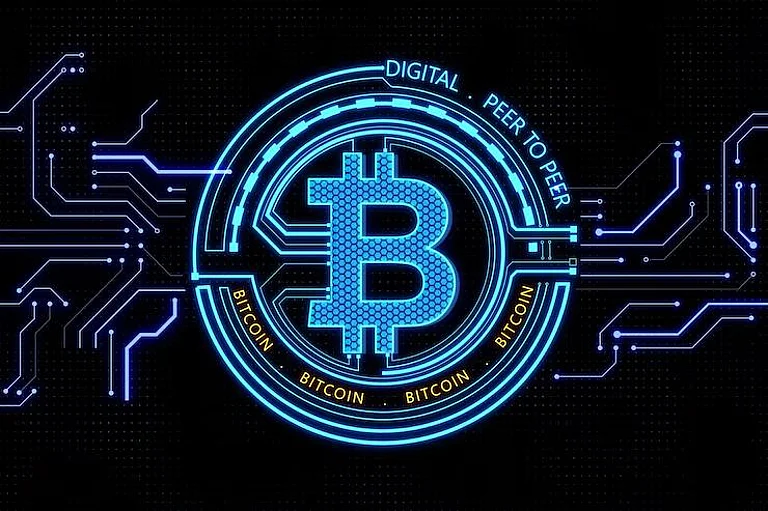When individuals first come into the Bitcoin sphere of existence, they tend to be most interested in the process of buying—how one buys coins and how much it will cost them. But what occurs most directly after one has purchased is also of concern, arguably more so: where to store those coins. This is where the decision on a Bitcoin wallet enters into play as a matter of utmost importance. The wallet is not just a digital repository of your funds; it is the portal to your ownership, security, and control of your Bitcoin. The wrong choice brings inconvenience, vulnerability, or worse, loss of all time. Hence, selecting the best Bitcoin wallet is a matter of serious consideration and assessment.
Understanding Your Purpose Before Deciding
The decision begins with purpose and clarity. A wallet which is ideal for one individual could be totally inappropriate for someone else. Try to determine why you are buying Bitcoin in the first instance. If holding it for decades as an investment is your sole reason, then security will be the highest priority. Then you will likely go for wallets that specialize in robust protection and cold storage. Alternatively, if your use is to be everyday, maybe for trading, paying, or transferring, you might require a wallet that can grant swift and easy convenience. By not first deciding on the purpose of your use, you are likely to have a wallet that has a clumsy feel or is insecure for your own everyday.
Balancing Security and Convenience
Every wallet is somewhere on the continuum from maximum security to maximum convenience, and your task is to find the balance that is appropriate for your lifestyle. A hardware wallet, for example, is typically considered one of the most secure possibilities. It stores your private keys offline, which reduces the likelihood of hacking or online theft. But it also involves additional steps to make a transaction, which would be inconvenient if you are paying often. At the other extreme, a mobile wallet offers immediate availability using your mobile device, permitting you to make payments wherever you find yourself. But this is at the cost of greater susceptibility to cyber-attacks. The best wallet for you is not necessarily the most secure, or the most convenient, but one that provides some of both with which you are comfortable.
Control Over Your Private Keys
One of the easiest things to think about when choosing a Bitcoin wallet is whether or not it puts you in possession of your private keys. These keys are the encryption codes that confirm ownership of your Bitcoin and entitle you to spend it. If a wallet does not permit you to possess and control your own private keys, then technically your Bitcoin is in someone else's possession. Exchange-based wallets, for example, typically store private keys for users, and this places them at risk of hacking or failure of the company. The crypto proverb that is widely accepted across the universe—\"not your keys, not your coins"—illustrates this truth. As such, when choosing a wallet, make sure that it offers you an easy and secure way to recover and access your private keys.
The Recovery and Backup Usage
No matter how secure a wallet may be, without a way to recover it from an accident, it is useless. Phones get lost, computers break, and laptops crash. The best Bitcoin wallet for you is the one that makes recovery simple and safe. This is typically in the form of a recovery phrase, or seed phrase, which will enable you to access your funds on a new device. Some wallets also offer encrypted backups or secure integration to make it even more convenient. Without the type of recovery procedures you find here, wallet loss will result in all your Bitcoins being lost forever, and no one wants that. In wallet consideration, look at how they approach backups and whether you'd be comfortable with the recovery process they offer.
Compatibility with Your Devices
Practicability is too often an afterthought but is an important factor when choosing a wallet. Consider the devices you are using every day and how you will be keeping your Bitcoin. If your phone is something you use a lot, then an in-phone wallet that integrates directly with iOS or Android will be most comfortable. If you are stationary near a computer, a computer wallet may be more convenient for your routine. For those who desire the greatest level of separation between their daily devices and their Bitcoin balance, hardware wallets are an independent solution, usually with companion apps for desktop and mobile use. A wallet needs to integrate well into your current digital way of life and not force you to learn new unfamiliar tools.
Reputation and Trustworthiness
Trust is another help in wallet choice. A wallet may advertise itself as secure, but its true worth is in its past and the trust it inspires in the community. It is wise to check the reputation of the issuer of the wallet before making a choice. Wallets with a demonstrated history, open-source code, and audited frequently by security auditors are safer. Reading reviews from customers, reading forums, and observing for how long the wallet has been functional can reveal a lot about the reliability of the wallet. Selecting a wallet with a good reputation does not just reduce risks but also guarantees that the wallet will be supported and updated in the future.
The Role of Cost in Selection
Price is an additional consideration when choosing a wallet, but never the determining one. Most digital wallets don't cost anything to download, and the hardware wallets do have a one-time buy price. For one that has a significant amount of Bitcoin, purchasing a highly-regarded hardware wallet is usually a good investment because the price is relatively low compared to the security it offers. On the other hand, if you only test with minor stakes, beginning with a free but trustworthy mobile or desktop wallet may be more convenient. The idea is to look at price not in a vacuum, but as a comparison against the functionality the wallet provides in terms of usability and security for your own purposes.
Finding the Most Appropriate Choice
The task of choosing the perfect Bitcoin wallet is not one of discovering the "best" on some kind of abstract plane, but rather identifying the one that best fits your own situation.
It is a question of weighing your use case, a balance between ease and security, private key control, examining recovery options, and discovering a wallet that will logically fit into your life online. It also involves researching the reputation of the wallet as well as the price in relation to the protection provided. If considered, this decision is no longer a frightening option but a freeing one. The suitable wallet not only gives security to your Bitcoin but to your sanity as well, so that you might dedicate yourself to your economic aspirations without the persistent dread. And lastly, the wallet that you select is the beginning of your Bitcoin adventure, and a wise selection makes this beginning as strong and firm as it could be.

























